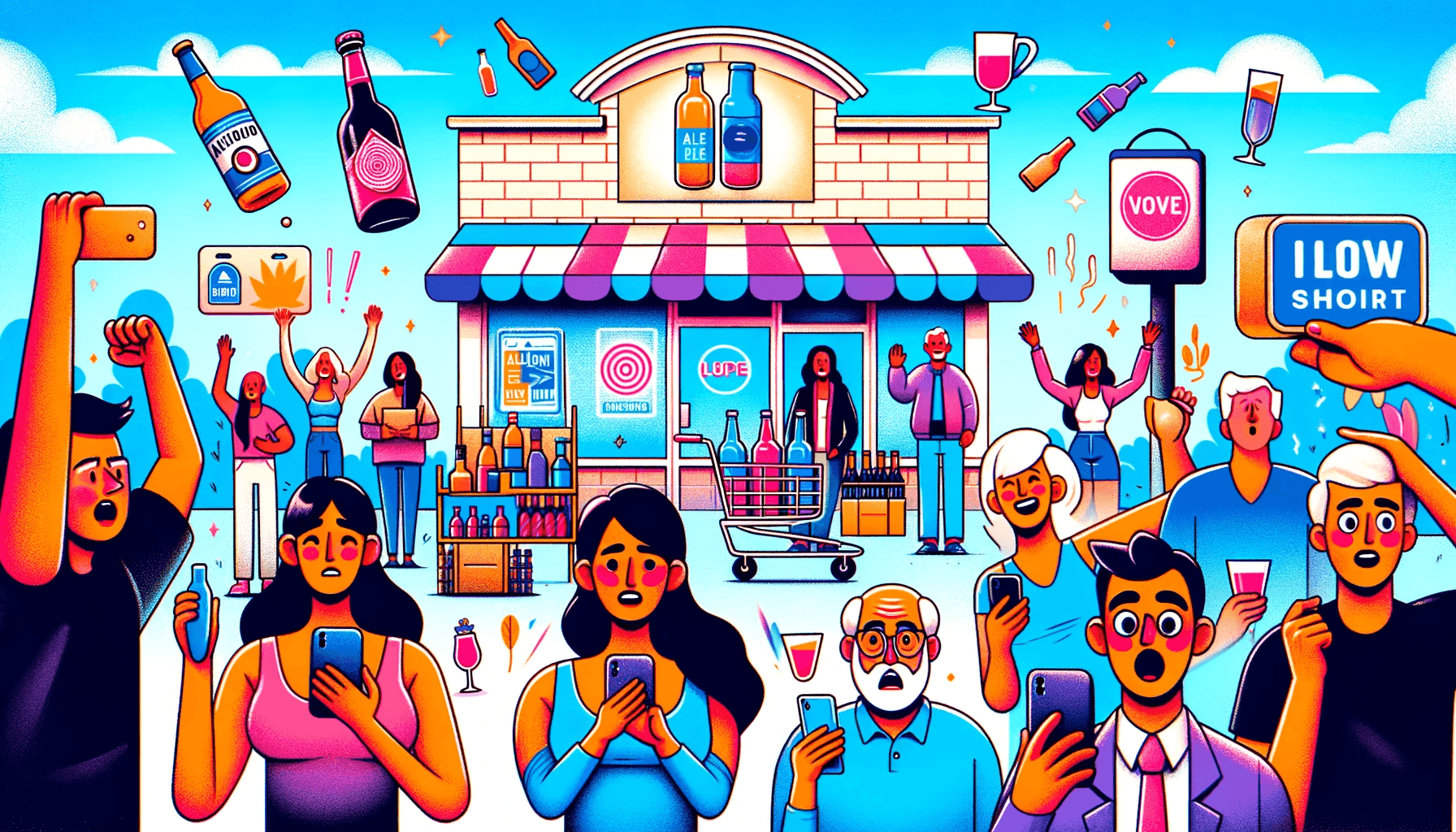Reactions to Ontario regulatory changes
Reactions to Ontario regulatory changes
Reactions to Ontario regulatory changes
We sort through the mixed opinons from the twitter/linkedin-sphere.
We sort through the mixed opinons from the twitter/linkedin-sphere.
We sort through the mixed opinons from the twitter/linkedin-sphere.
Dec 14, 2023
Dec 14, 2023
Dec 14, 2023



Policy Change: Diverse Reactions
Ontario's plan to expand alcohol sales by 2026 has sparked varied reactions on Twitter, ranging from economic and job concerns to praises for increased fairness and consumer convenience.
Economic Impact and Jobs
The potential sales decline at the Liquor Control Board of Ontario (LCBO) and potential job losses are key concerns. The Ministry of Finance is focusing on reskilling programs to address workforce disruptions.
Tax Changes
Eliminating the 6.1 percent wine basic tax at on-site winery retail stores is a boon for local producers, seen as a move to level the playing field with larger retailers.
Public Safety
There are worries that broader alcohol access could lead to higher DUI rates. The current LCBO and Beer Store model is credited with helping maintain lower DUI incidents.
Democratizing Alcohol Sales
The policy is positively viewed for offering smaller retailers opportunities that were previously exclusive to larger entities, enhancing accessibility and consumer choice in the alcohol market.
Challenges in Distribution and Sales
The addition of 8,500 new retail points presents logistical challenges for producers, A larger sales force is needed to manage the increased retail locations, leading to higher operational costs, particularly for smaller producers.
Market Dynamics and Data Management
With the retail expansion, there's a need for more sophisticated data management to track sales and trends. Larger brands with are at an advantage, potentially altering the market's competitive dynamics.
Policy Change: Diverse Reactions
Ontario's plan to expand alcohol sales by 2026 has sparked varied reactions on Twitter, ranging from economic and job concerns to praises for increased fairness and consumer convenience.
Economic Impact and Jobs
The potential sales decline at the Liquor Control Board of Ontario (LCBO) and potential job losses are key concerns. The Ministry of Finance is focusing on reskilling programs to address workforce disruptions.
Tax Changes
Eliminating the 6.1 percent wine basic tax at on-site winery retail stores is a boon for local producers, seen as a move to level the playing field with larger retailers.
Public Safety
There are worries that broader alcohol access could lead to higher DUI rates. The current LCBO and Beer Store model is credited with helping maintain lower DUI incidents.
Democratizing Alcohol Sales
The policy is positively viewed for offering smaller retailers opportunities that were previously exclusive to larger entities, enhancing accessibility and consumer choice in the alcohol market.
Challenges in Distribution and Sales
The addition of 8,500 new retail points presents logistical challenges for producers, A larger sales force is needed to manage the increased retail locations, leading to higher operational costs, particularly for smaller producers.
Market Dynamics and Data Management
With the retail expansion, there's a need for more sophisticated data management to track sales and trends. Larger brands with are at an advantage, potentially altering the market's competitive dynamics.
Policy Change: Diverse Reactions
Ontario's plan to expand alcohol sales by 2026 has sparked varied reactions on Twitter, ranging from economic and job concerns to praises for increased fairness and consumer convenience.
Economic Impact and Jobs
The potential sales decline at the Liquor Control Board of Ontario (LCBO) and potential job losses are key concerns. The Ministry of Finance is focusing on reskilling programs to address workforce disruptions.
Tax Changes
Eliminating the 6.1 percent wine basic tax at on-site winery retail stores is a boon for local producers, seen as a move to level the playing field with larger retailers.
Public Safety
There are worries that broader alcohol access could lead to higher DUI rates. The current LCBO and Beer Store model is credited with helping maintain lower DUI incidents.
Democratizing Alcohol Sales
The policy is positively viewed for offering smaller retailers opportunities that were previously exclusive to larger entities, enhancing accessibility and consumer choice in the alcohol market.
Challenges in Distribution and Sales
The addition of 8,500 new retail points presents logistical challenges for producers, A larger sales force is needed to manage the increased retail locations, leading to higher operational costs, particularly for smaller producers.
Market Dynamics and Data Management
With the retail expansion, there's a need for more sophisticated data management to track sales and trends. Larger brands with are at an advantage, potentially altering the market's competitive dynamics.
